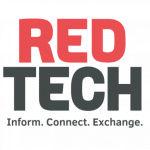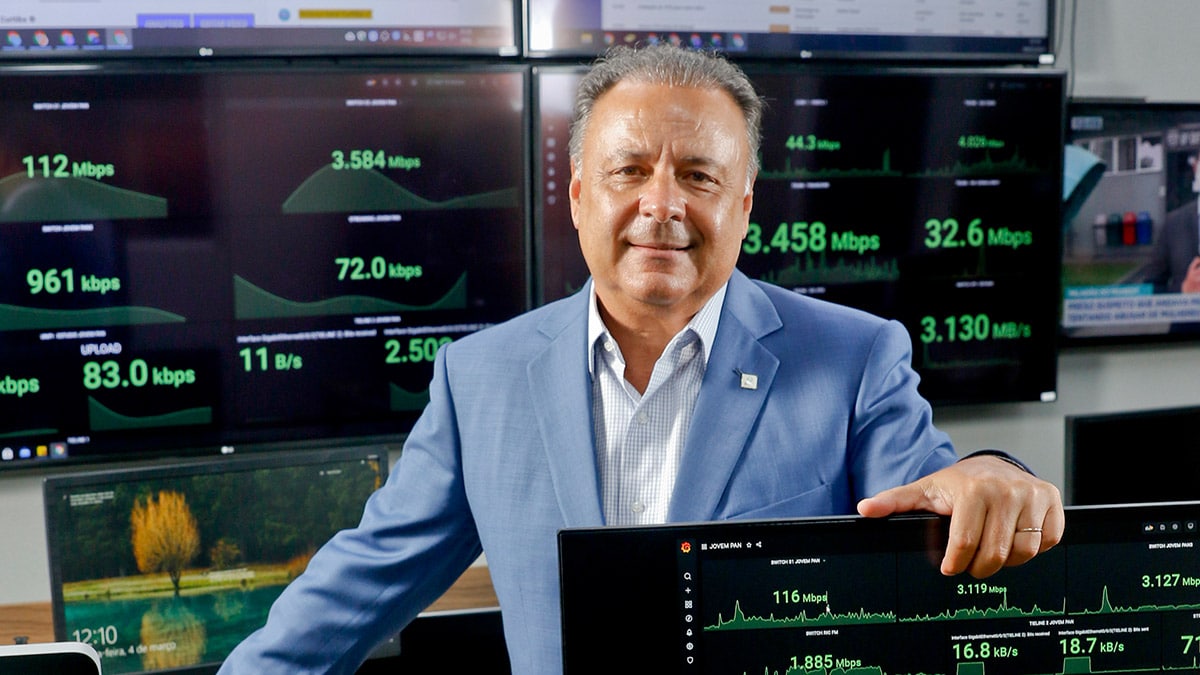Leonardo Petrelli is CEO and president of Grupo RIC [Rede Independência de Comunicação] in Brazil, which his father launched over 35 years ago. He started his career in 1982 working for TV Globo as an executive producer and, later, production director and eventually launched his own broadcasting venture. He developed the country’s first distance learning company and chaired institutions such as the Association of Broadcasters of Paraná and the Association of Sales and Marketing Managers of Brazil. Today, after a series of acquisitions of radio and TV stations, Grupo RIC is the largest affiliate of the Jovem Pan FM network, one of the biggest communications groups in Brazil, with some 25 million listeners and more than 109 stations.
RedTech: How competitive is the Brazilian radio market, and how are you differentiating yourself?
Leonardo Petrelli: It is very competitive. It is also reconstructing — migrating from AM to FM, undergoing digitalization and extending the broadcasting band, so there are a lot of changes on the dial. The AM market is drastically declining as AM stations transition to FM. In addition, new radio stations are emerging, such as Rádio Massa, which is proving popular, and Rádio Transamérica, which is big. Finally, the Jovem Pan network, of which we are part, is becoming a major platform for streaming content services, thanks to a strong partnership with YouTube and the creation of specific OTT services.
Jovem Pan practically transformed itself into a television station overnight — as a radio service offering video — with a strong programming grid in service, journalism and sports. I believe this type of radio service in a large country is a powerful vehicle that remains close to the community. It provides a reliable service to the population, especially the needy, and is also a very agile, easy and inexpensive vehicle to reshape. Thus, we think radio has a long life, especially in the service sector.
RedTech: How has the health crisis impacted your operations? Has it sped up your transition to non-linear formats?
Petrelli: The crisis impacted our business positively — there was stability in the Brazilian family to continue watching television during the lockdown and, of course, a significant opportunity for them to access new streaming platforms. So yes, there was an increase in competitiveness, but there was also a great opportunity for broadcasters to make money or, at least, grow in proportion to retail. The government introduced measures to cut costs and reduce working hours and labor costs; so there was a balance. Overall, the broadcasting market remained relatively healthy.
I believe we have advanced a lot in radio. Besides the affiliation with the Jovem Pan network, we also created a new radio station under Grupo RIC and debuted RIC FM radio. It is radio that talks to our television audience. We also acquired new stations, new frequencies to integrate with the growth of Jovem Pan FM, which means we have three frontlines in radio: Rádio Popular FM is new; we remain aligned and affiliated with Jovem Pan radio, which provides entertainment in the form of content and music for young people; and now, finally, Jovem Pan News for 24-hour journalism.
We are also making changes in streaming. Today all our studios also offer a TV format. So, we broadcast video for all our programs. We still believe in radio even though it currently represents 6% of the whole advertising market.
RedTech: Online audio, both streaming and on-demand, is booming. How is Grupo RIC sustaining its audience loyalty and advertising support as competition from other platforms intensifies?
Petrelli: We are attracting audiences online through streaming with our YouTube partnership. We are, of course, learning how to monetize this and make it healthy and profitable.
We also see a tremendous opportunity in 5G cellular network technology. We believe it will be a huge boost for streaming formats. In addition, the government has issued a decree that all cellphones have separate antennas to receive broadcast radio frequencies. This means that in addition to streaming, people can access radio stations through their mobile devices for free. We believe these factors will make the consumer journey more attractive and bring us closer to our audience.
RedTech: What’s the status of the radio market in Brazil?
Petrelli: We have 250 million people. Many of them have purchasing power, and radio is a much-used medium for news, services and entertainment. So, radio remains strong even though it only contributes to 6% of the country’s advertising market. But it’s an unstable market and radio networks are working hard to remain relevant.
Developing interaction and data storage technologies is our greatest challenge, as I believe it is for everyone.
RedTech: What role does technology and software play in growing your business or helping you cut costs? And where are you directing your biggest investment in technology?
Petrelli: We are aggressively developing new technologies through partnerships with startups. Developing interaction and data storage technologies is our greatest challenge, as I believe it is for everyone. This is needed to move from an offline audience to an online audience and migrate our audience from each of our vehicles — television, radio, print — to become connected audiences.
The biggest investment we are going to make is to create an OTT platform and migrate all our content there to allow users access to all of Grupo RIC’s content. However, it has been a challenge — and expensive — because the cost of bandwidth for streaming is still excessively high. We are heading toward a hybrid model with the YouTube partnership and gradually moving in a direction that will help our audiences transition to online platforms, where we can provide a richer experience and understand them better.
RedTech: Is there a future for music radio when confronted by Spotify and various other streaming services and OTT players?
Petrelli: We believe in podcasts. We created the RIC podcast platform, where we have information, entertainment and other services. These services also broadcast through Spotify, and we do believe we can be successful, despite Spotify also being a competitor. We believe our closeness to our community — the way we interact, the language we use, the local nuance and insights — differentiates us from Spotify, and is our advantage.
RedTech: What is the attitude of advertisers in Brazil to radio as a medium?
Petrelli: The market is still very focused on the big media, with funds initially allocated to television, which has practically 60% of the advertising budget. Online media has grown a lot in the last few years, from between five and six percent, to almost 20% today. Then we have OOH [out of home], which has grown from 10 to 12%, newspapers and magazines, which hold around three to four percent, and, finally, radio with its six percent share. Advertisers use national network radio for large national campaigns and local radio for local media and retail customers.
We believe our closeness to our community — the way we interact, the language we use, the local nuance and insights — differentiates us from Spotify, and is our advantage.
RedTech: How is radio regulated in Brazil, and are you expecting changes?
Petrelli: There is a very rigid regulation in Brazil. A company cannot own more than four television stations and four radio stations, so it cannot grow in volume. The government is now working to change this policy so groups can own more stations and, therefore, scale their audiences and revenue. Also, new regulation is underway that will only allow 30% of foreign capital. We want to increase that to be more attractive to foreign capital investments.
These are just two examples of how we are working with the government to allow media groups to be more competitive against big tech and telecoms.
RedTech: Is your network using the cloud to manage its operations, or is most content and information held on site? How do you protect your IT operations in terms of cybersecurity?
Petrelli: Currently, our team uses the most modern cybersecurity systems on the market to protect our infrastructures, applying international concepts and methodologies in this process, with firewalls, antivirus and monitoring systems against possible attacks. Our structure is mixed, with a cloud data center and our own data center. We are always seeking redundancy and security for our platforms and data. We also strictly follow the LGPD [General Law of Data Protection] process.
RedTech: What other significant trends will shape Brazil’s radio industry and where do you see your organization in the future?
Petrelli: We are witnessing a great challenge in radio and television; broadcasting in general, really. In Brazil, media has been dominated by a large network called Rede Globo. It held more than 50% of the audience across all platforms. New media technologies have cut Rede Globo’s revenue, and it also faces political challenges. We believe this is a promising moment to occupy a new leadership role in Brazil’s media, as both a radio and a television network.
Ultimately, we believe those who are the most relevant to their community will be the winners. The big networks will become big techs through their OTTs and streaming platforms. However, we firmly believe that the regional networks like ours will continue — via all the available technologies — to provide a valuable service to the community, with factual journalism and information needed for daily life, so the community identifies and trusts us. Technological advances in Brazil will enable new players, and we are preparing to be one of the nation’s biggest.

